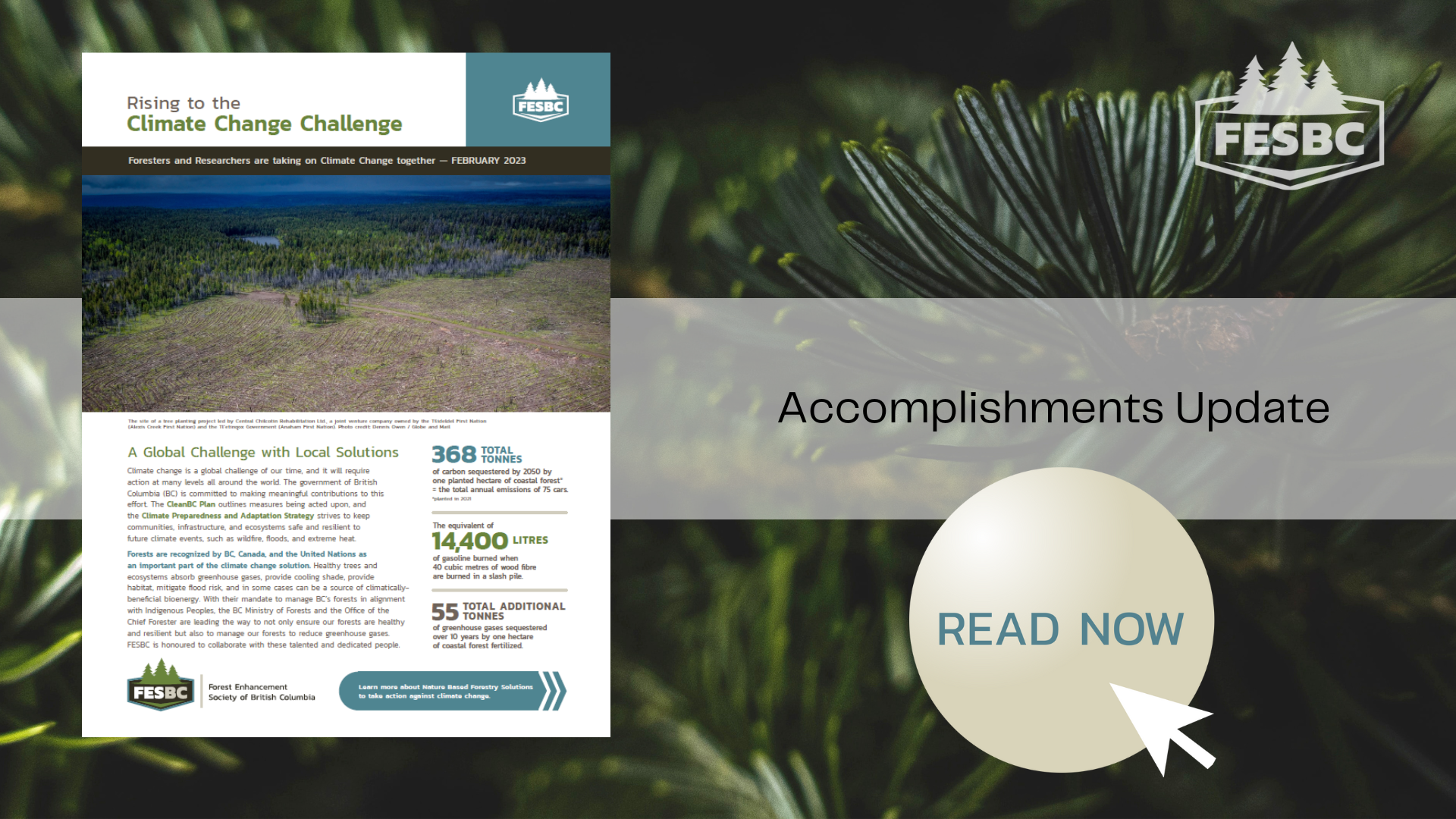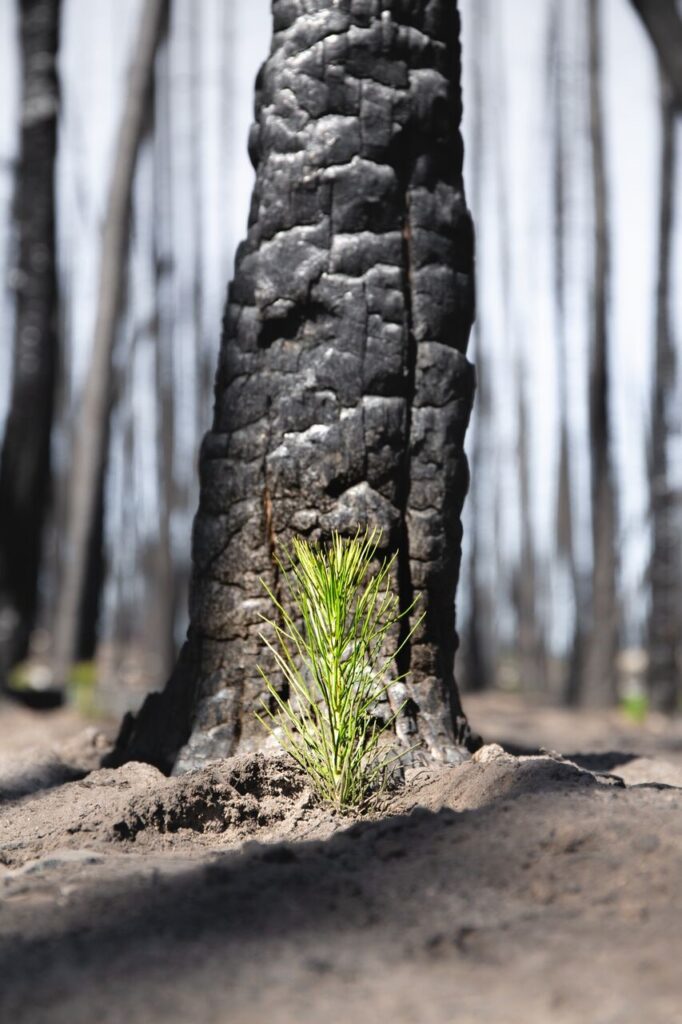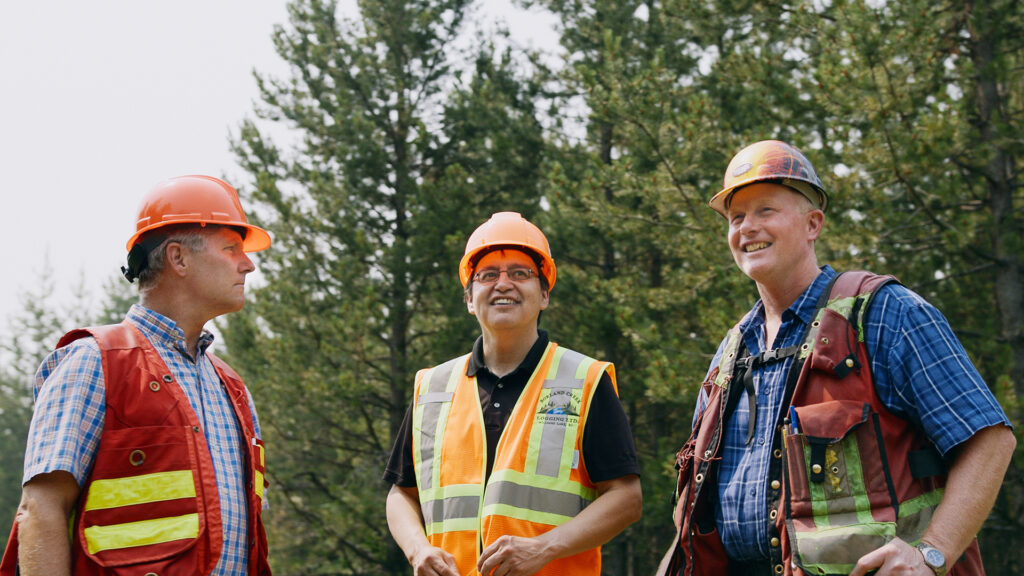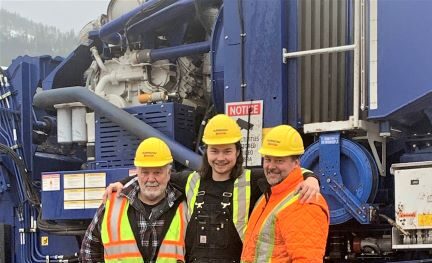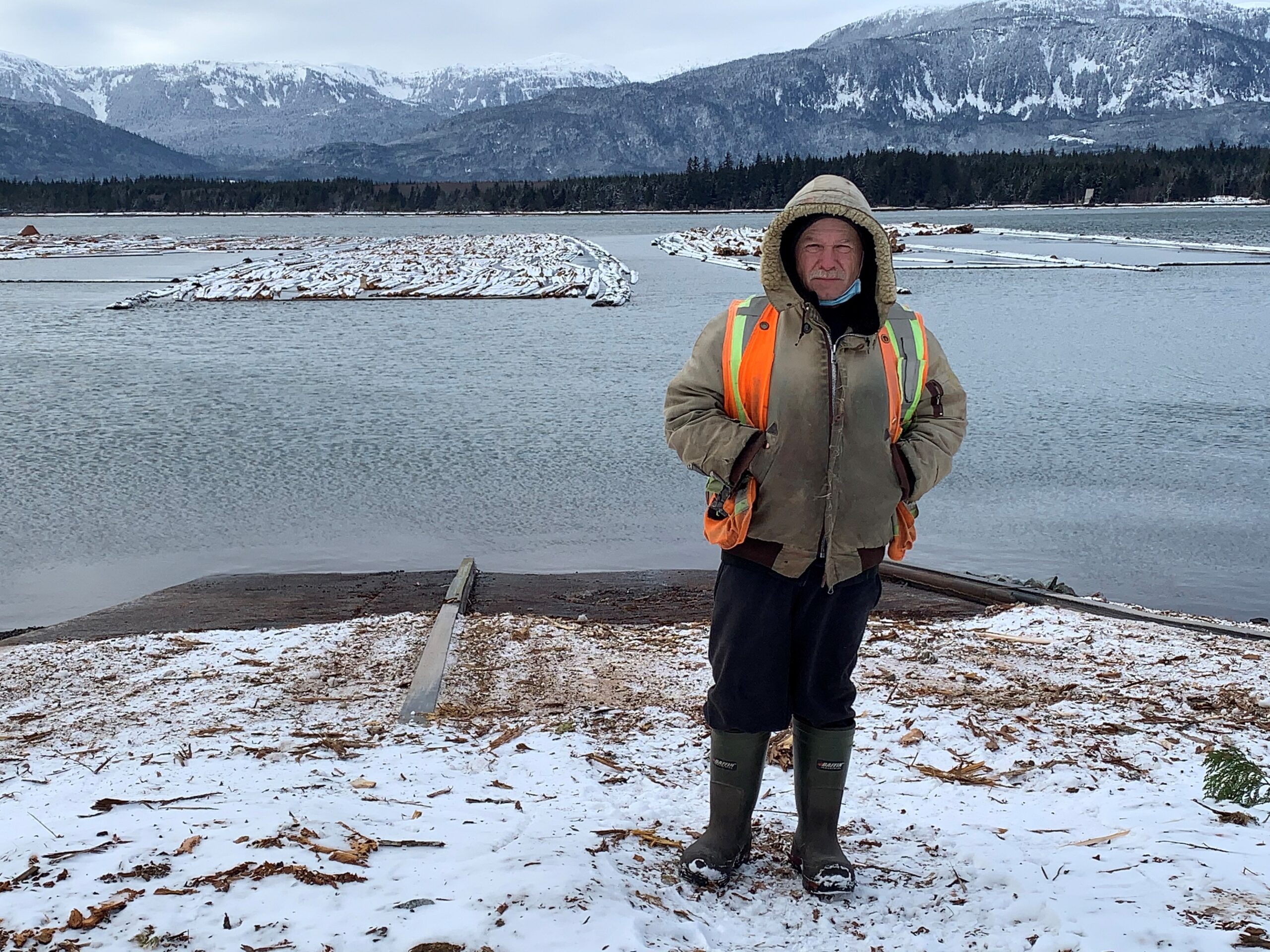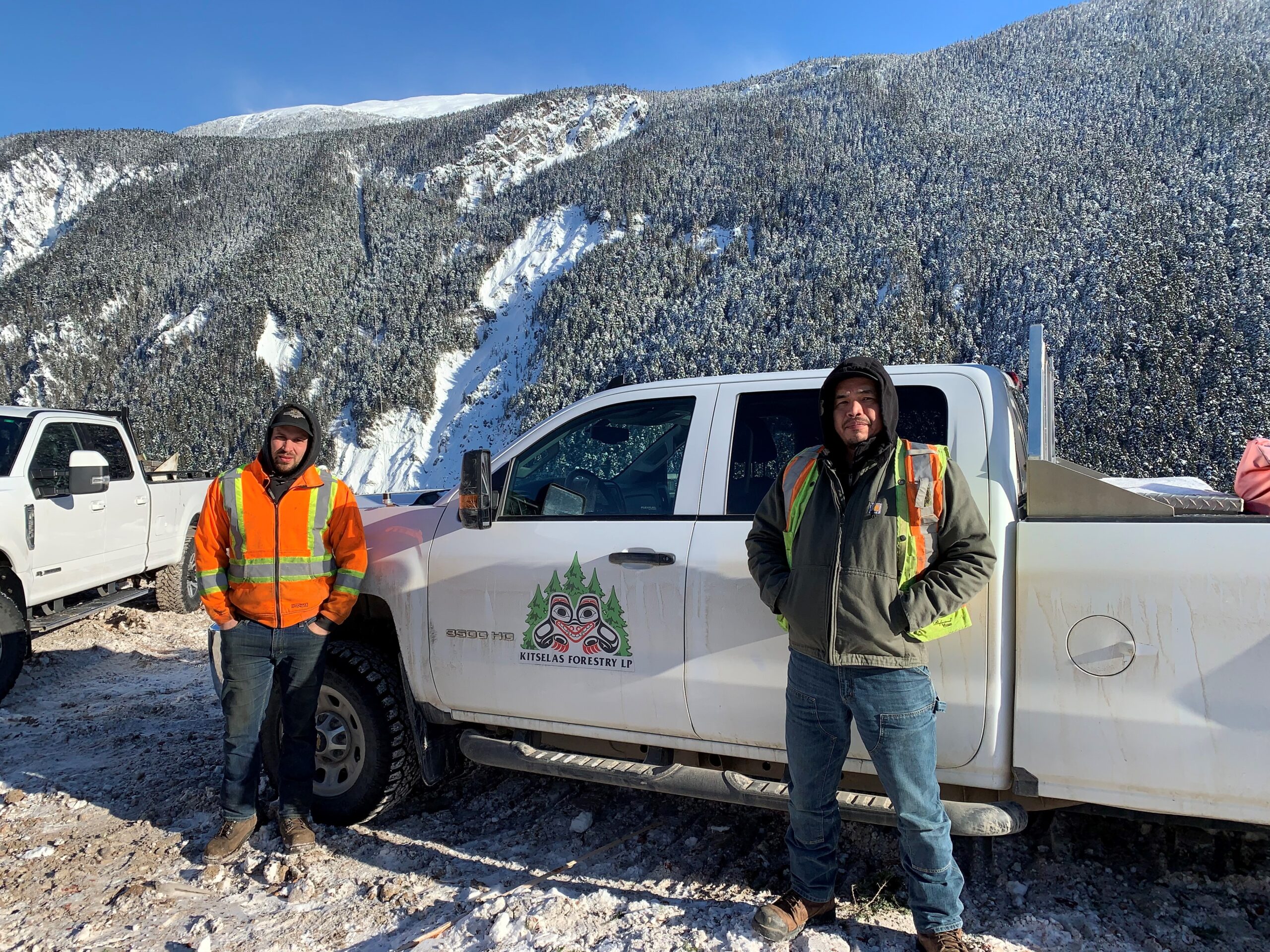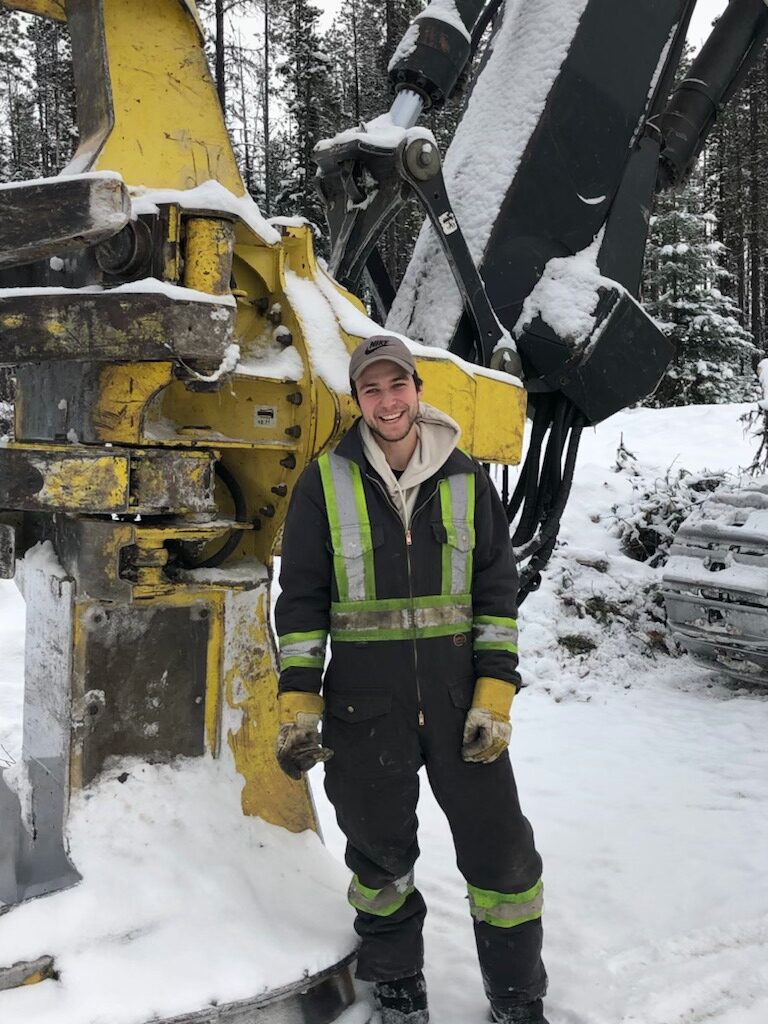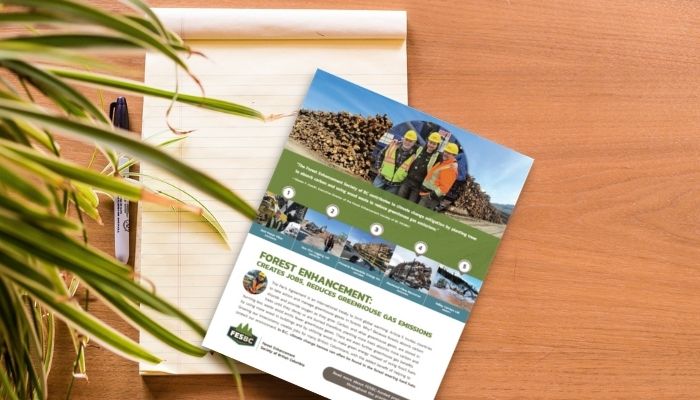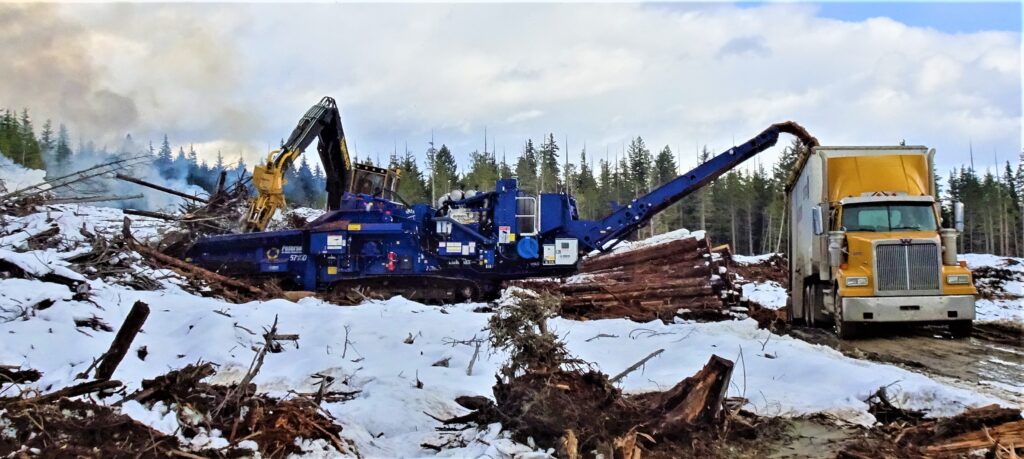The Forest Enhancement Society of BC (FESBC) doesn’t want to be just another funder of projects or a make-work program. They want meaningful and durable transformational shifts to greener economies, healthier ecosystems, reduced risk of mega wildfires in forests, improved wildlife habitat, and more. Therefore, FESBC took a very strategic approach to funding projects, seeking to maximize multiple long-term benefits. The projects are about the local people, communities and organizations who are doing the hard work to create a different future. Their stories needed to be told.
FESBC has just been recognized with a Gold Hermes Creative Award in the Print Media category for their 2022 Accomplishments Report. This prestigious honour not only underscores FESBC’s unwavering commitment to effective communication and high-quality storytelling but also validates their efforts to enhance the province’s forests through funding good forestry management projects. This marks the second time FESBC has won the creative award.

Produced in collaboration with Amplify Consulting Inc. and Signet Studio, the 32-page publication highlights 263 transformational forestry projects throughout British Columbia. The report features striking photography and compelling stories to provide readers with a clear understanding of forestry’s role in taking action on climate change and driving positive long-term economic and social benefits.
Steve Kozuki, Executive Director of FESBC, expressed his gratitude, stating, “This recognition of our Accomplishments Report is a testament to the hard work and dedication of everyone involved in the project. We are thrilled to have received this award and continue to work diligently to enhance our forests for the benefit of all British Columbians.”
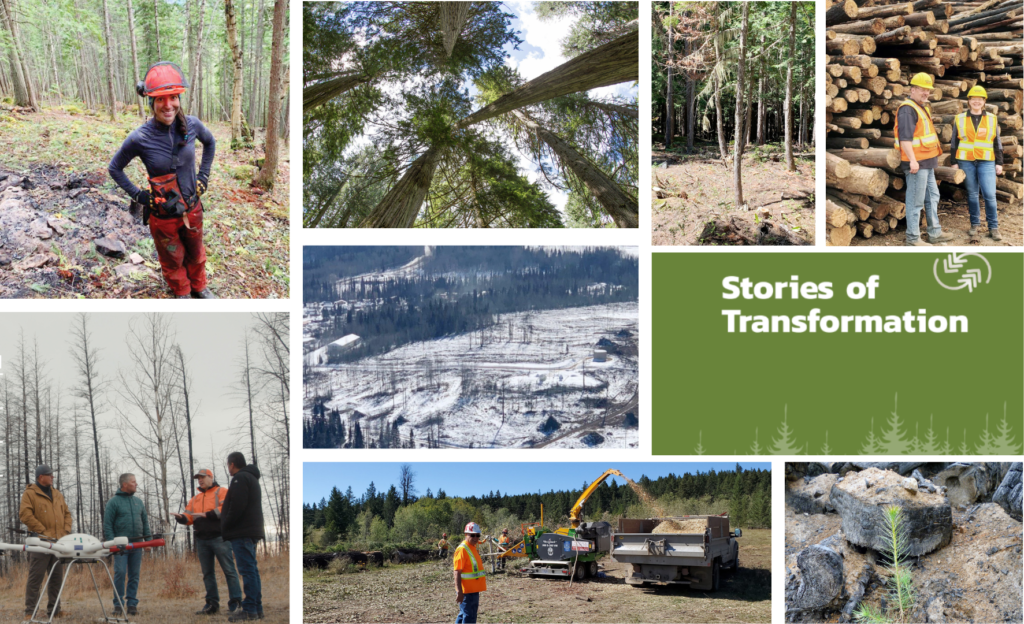
The Accomplishments Report highlights eight forestry stories of transformation that have benefited communities, workers, and the environment. It celebrates the outstanding work being done with the many millions of dollars allocated by the Province of British Columbia to support forest enhancement initiatives throughout the province.
Kozuki believes that the Accomplishments Report is an important tool for showcasing the work being done by the forest sector across the province.
“Forestry can be an unsung hero because the work is oftentimes not seen or understood. Local people know that forests can be a means to achieve many social, economic and environmental goals. By telling the stories of remarkable people and communities working to enhance our forests through this report, we can shine a spotlight to build understanding for all the good work happening in forestry, and that benefits us all.”
The Hermes Creative Awards is an international competition that recognizes outstanding work in the creative industry. With over 6,500 entries from all over the world, the competition is highly competitive, and a gold award is a significant achievement.
Read the 2022 Accomplishments Report here.



